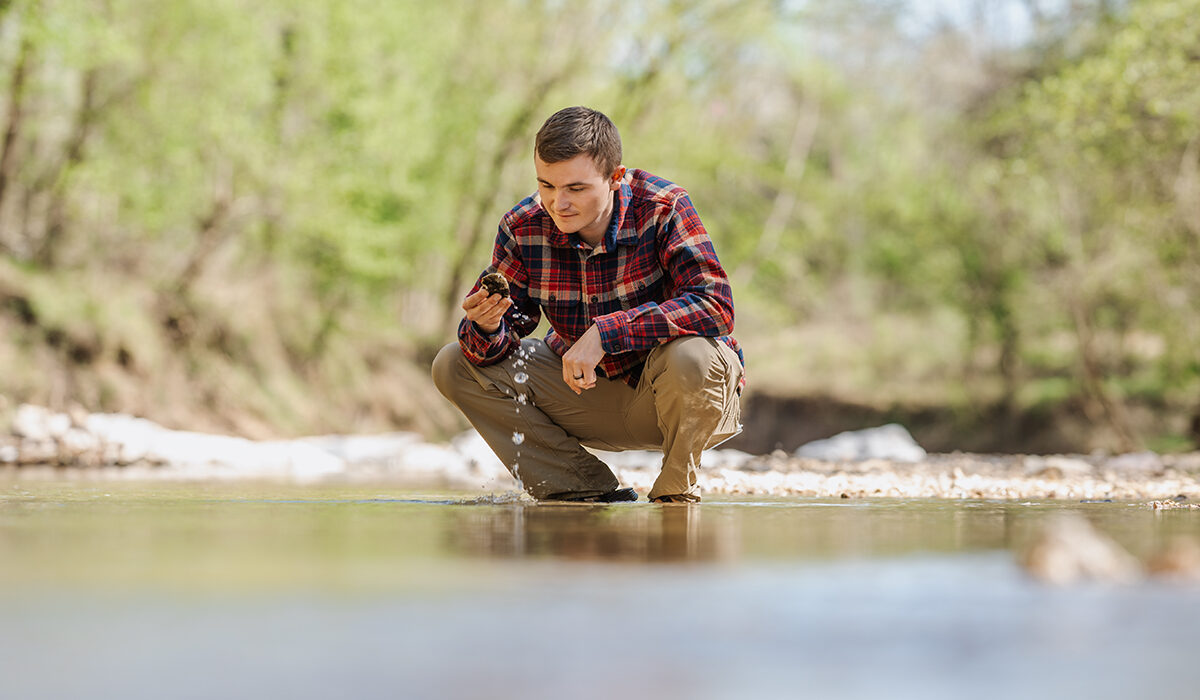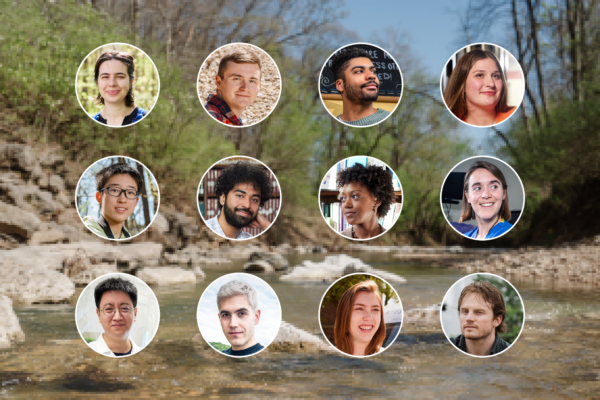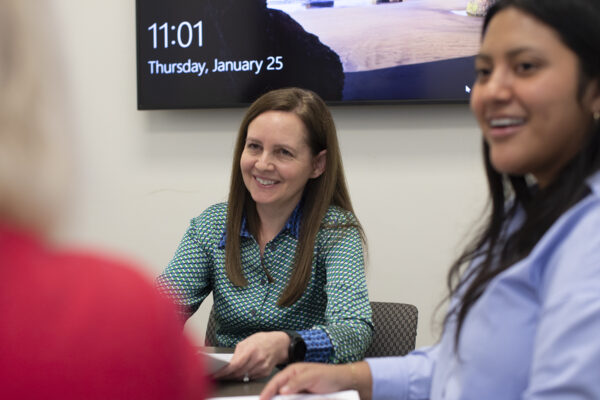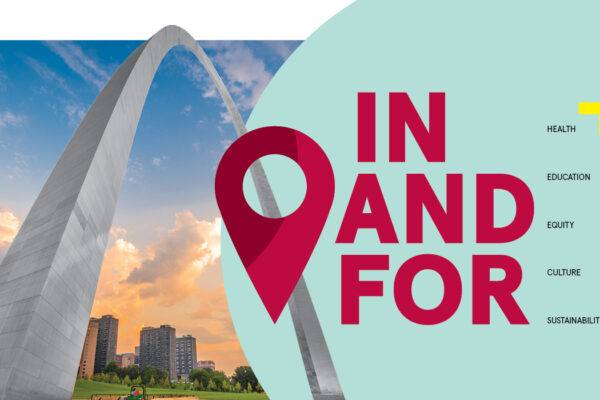Some of Austin Schorfheide’s happiest memories are working the family farm in Hoyleton, Ill. — baling hay, milking cows, planting corn and soybeans. So while Schorfheide decided not to be a farmer himself, he does want to make life better for farming communities.
“Growing up, I started to see a lot of consolidation,” said Schorfheide, a degree candidate from the School of Law. “That had big economic consequences for small family farms and rural communities. There have been environmental consequences, too. In college (at the University of Illinois), I started to think about these bigger questions about sustainability, climate change, environmental health, ecosystems and how they are tied to rural places.”
Here, Schorfheide shares how he hopes to leverage the law to protect the land, waterways — and the people who rely on them.
How can the law be a tool to address climate issues?
A lot of times, when climate change gets brought up in agricultural circles, it’s the boogeyman. Farmers think it’s going to be government bureaucrats coming to their farm telling them, “You have to do this. You can’t do this practice that you’ve been doing forever.” What I’ve been able to see is that the law provides options that aren’t costly to the farmer or the government but can be beneficial, like USDA rural programs that encourage sustainable practices, like buffer strips of native grasses to prevent runoff.
At the same time, the law often lags behind. For example, right now four companies control more than 80% of beef processing in the U.S., which is limiting opportunities for rural communities and having profound consequences for the nation’s waterways. I’ve argued for a change in existing law that allows local ranchers to connect with local consumers. It’s an idea that makes a lot of sense and has support on both sides of the aisle. But it’s not a priority, so nothing gets done.
Have you had a favorite course?
A really influential class for me was natural resources law. It covered everything from water law issues to the Endangered Species Acts to federal land use to show how we regulate natural resources in the United States. The class really helped me put all of the pieces of the puzzle together and put it into practice. I had so many great conversations with the professor, Ted Heisel, who also grew up on his family farm. I had never seen someone with my background on the other side as a mentor or a role model.
After graduation, you will be a lawyer for Lewis Rice. How can a lawyer for a big corporate law firm address climate change?
A lot of people wouldn’t associate environmental advocacy with a big law firm. I am specifically joining the estate planning department, and there are a lot of legal mechanisms that have been established through tax law and bills, like the Inflation Reduction Act, that allow individuals to make choices that have positive impacts.
For instance, when you put land in a land trust you can require, for example, that it stay in a natural state for a set number of years or be part of a specific conservation. The reality is that most land in the United States is privately owned, so landowners play a powerful role in the environment. So mechanisms like land trusts and conservation easements allow people to make decisions that are really good for them financially and for the environment. In my experiences with farmers and ranchers, when you explain these programs that keep our streams clean, that address soil erosion, that protect endangered species, those landowners will say yes.



